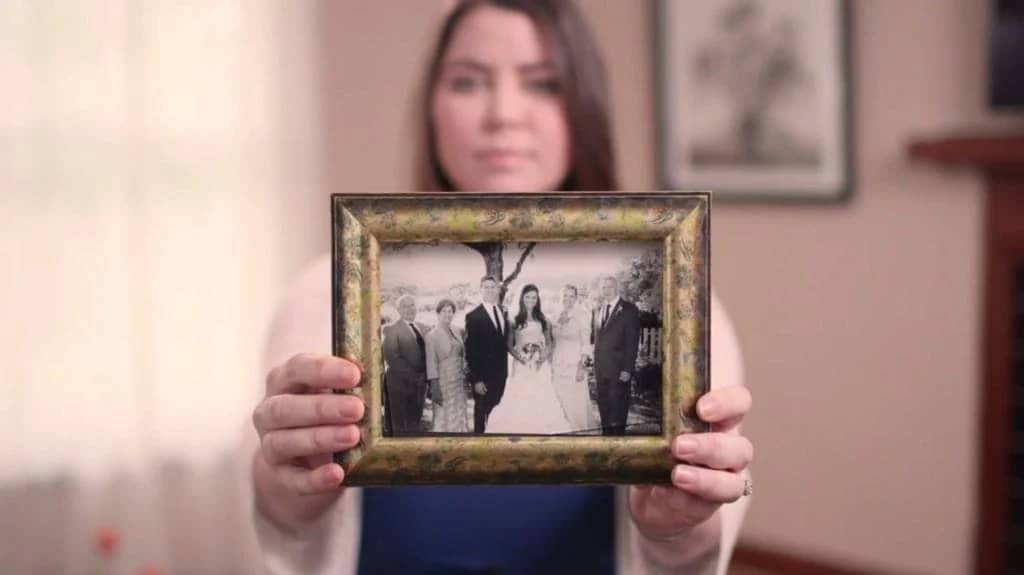
Norma Vazquez de Houdek is a retired program coordinator at the New Mexico Department of Health. Having witnessed many different kinds of deaths and approaches to planning for the end of life, she implores people to talk to their loved ones about the kind of end-of-life care they want.
I remember when my father died, I showed up to the hospital and saw he had a band on his wrist labeled “Do Not Resuscitate.” I was surprised because we had never had a conversation about his end-of-life care plans. Apparently, the doctor discussed it with my father in the hospital as he was dying of emphysema. While the DNR might have been the best option for my father, that conversation was one that should have happened much sooner between my father, his doctor and our family.
The inequities in our healthcare system can make it difficult for Latinos to navigate end-of-life care. For that reason as well as others, we as Hispanics tend not to have those conversations with our caregivers, be they medical providers, family members or other loved ones. But I believe that makes it all the more important that we start having those conversations and document our wishes before the band gets put on our arms.
During the Covid-19 pandemic, I worked on the hotline for our local health department, and I consistently saw how people were not prepared for the end. They were grief-filled, not just at the loss they had suffered, but at how surprised they were by how it played out.
I saw this in my own family with my uncle. He was 87 years old, dying of Covid, and when the medical staff were about to put him on a ventilator, my aunt made the decision to just let him be at peace rather than use that mechanical intervention. It would have been an even better situation, however, if that was a decision my uncle had made himself and communicated to my aunt and others before he ended up in that position and my aunt had to step in. It would have been easier on her to know that that was exactly what he wanted.
Thankfully, I had a good model of advance care planning in my mother, a beautiful matriarch who was much more of a planner than my father. My mom made it clear that she did not want to be hooked up to a machine at the end. When her time came, we knew what she wanted because that’s something she had asked for and talked about with us.
For my mother, advance care planning wasn’t simply about being hooked up to a machine or not. That was just one part of the conversation. My mother was very spiritual — I was raised going to church every Sunday with my mother, my aunts and my grandmother. Her spirituality was another part of her advance care planning. Her patron saint was Guadalupe, and her rosary and funeral were centered around our church and her patron saint and butterflies, because she loved them all. For her, and for us, death was not so scary; it was an opportunity to creatively honor who my mother was and what she loved.
I believe that much of my resiliency comes from the way my mother and other women in my family raised us, including how we think about living and dying. Death comes for us all. I just hope I march down that road with grace, acceptance and optimism like my mother.
My wife now knows that if I get Covid, I don’t want to be on a ventilator. I just want to receive palliative care. In fact, as a same-sex couple, these are issues that Mary and I have been dealing with long before the pandemic. Decades ago, before we were married, we created medical directives, financial directives and a regular will. Once we did that, I felt much more at peace and protected as a couple. For other gay or lesbian couples, especially those whose families might not respect their wishes, end-of-life planning is paramount.
I don’t want my loved ones’ memories of my last weeks or days to be full of pain and uncertainty, or for those memories to overshadow the life I’ve lived. I’d like instead to be remembered as someone who lived a long life full of love, with a wonderful partnership and marriage with a woman I fell in love with 35 years ago. I’d like to be remembered as someone who has deep faith in her family, who cares about others, as somebody who has a zest for life.
And that’s the thing: Talking about death is really talking about living, because you can’t really live well if you’re afraid of dying. When you plan ahead, it gives you and your loved ones peace and freedom from worry. By preparing for the end of life, you can live for today.

Nothing advances our common cause of improving end-of-life care like real stories. Inspire others and drive change by sharing your story today.
Mail contributions directly to:
Compassion & Choices Gift Processing Center
PO Box 485
Etna, NH 03750